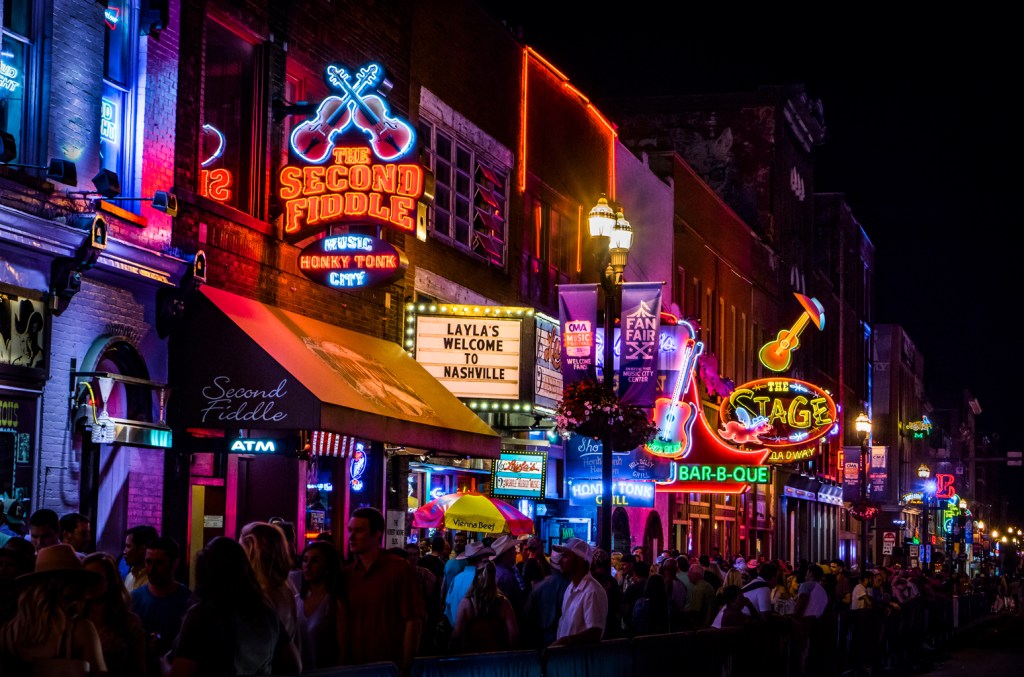The results of the Greater Nashville Music Census 2024 were revealed today during a press conference in downtown Nashville with many creatives and industry members voicing concerns about the cost of living, low pay rates, opportunities for younger artists and racial and racial inequalities.
The census was conducted by Sound Music Cities and surveyed the Greater Nashville area, which includes the 14 counties in and around Nashville. The census, conducted from March 1 to April 1, gathered 4,256 respondents, with music creatives making up 61% of respondents, industry members making up 31% and venues/presenters making up 7% of respondents. respondents. In terms of musical genres, 28% of respondents work in country music, with other genres including American Roots (16%), rock (12%), pop (8%) and alternative (5%). Respondents from other genres such as gospel/contemporary Christian, rap and R&B were less than 5% per genre. Industry category respondents work primarily in agents/business services (20%), marketing (14%), production support (13%), and music publishing (10%).
Respondents in the creative category noted that their top concerns are “cost of living” (48%), followed by “pay rates not increasing” (38%) and “lack of music work” (26%). Creative respondents also noted that they spend an average of $13,559 annually on music-related spending for a total of $58 million, with 52% of that money spent locally.
The majority of respondents noted that they have never received financial assistance (76%) and that they are more willing for tax incentives/reliefs. The census also noted that Davidson County respondents also struggle more with rent or mortgage (30%) than respondents from other counties (20%). Respondents in Davidson County are also less likely to own their own home (59%) than respondents from other counties (75%). Additionally, 83% of respondents said they were concerned about low pay, while 65% found the lack of benefits such as health insurance and retirement a challenge.
The census noted the need for greater representation of Black, African-American, Hispanic and other minority groups in local and independent music scenes. Census results showed that Nashville's music ecosystem is predominantly white/European (85%), which is higher than that segment in the general population of the Nashville Metropolitan Statistical Area (71%). Black, African, and African American representation is 6%, lower than the general Nashville MSA population (14%). Hispanic representation in Nashville's music ecosystem is at 4%.
Men made up 61% of Nashville's music ecosystem across all census respondents, while women made up 37%. One percent of respondents preferred not to reveal their gender, while another one percent use a term other than male or female. Among industry members, women led at 55% of respondents, with men at 44%. The creative sector revealed the starkest disparity, with men at 71% and women at 26%.
The median household income for respondents is $93,000 per year, while respondents note that direct income from music-related work is, on average, $52,000 per year per respondent.
Local performances and touring are the main sources of income for creative professionals at 27% and 20%, respectively. Recording and studio work also provide additional income, with 27% of respondents earning some income from recording and 25% from studio work. Just over a third of respondents noted that they earn very little income from songwriting, while 23% reported that they earn some income from songwriting.
The nearly 300 venue/presenter respondents offered an average of 172 events per year, collectively offering over 26,000 annually. Most are live music venues (31%) or independent promoters (15%). Help for independent venues was also identified as a key need, including increasing the number of local independent venues booking artists and providing financial/political support for independent venues to purchase property (68% of live music venues rent their venues ) and avoiding displacement due to rising property values, such as models used in Toronto and Sacramento.
When it comes to efforts to help creatives continue to stay in the Nashville area, 41% say tax incentives/reliefs would be helpful, followed by 37% of respondents who say creative/friendly policies music, such as parking and loading zone policies would be helpful. useful.
Also, work is needed to grow the pipeline for new talent and different genres. Increasing opportunities for 18-24-year-old talent, developing mentoring programs and platforms for younger artists and increasing performance venues/opportunities for various music genres, as well as addressing gender imbalances in the independent music ecosystem, especially for creatives, and strengthening representation of Black, African-American, Hispanic and other minority groups in local and independent music scenes were all cited as necessary solutions to attracting new talent.
Other music-friendly cities in the Sound Music Cities group include Dallas, Chicago, Minneapolis, New Orleans and Chattanooga, Tenn.
For full census results, visit greaternashvillemusiccensus.org.
from our partners at https://www.billboard.com/pro/sound-music-cities-nashville-music-census-results/
